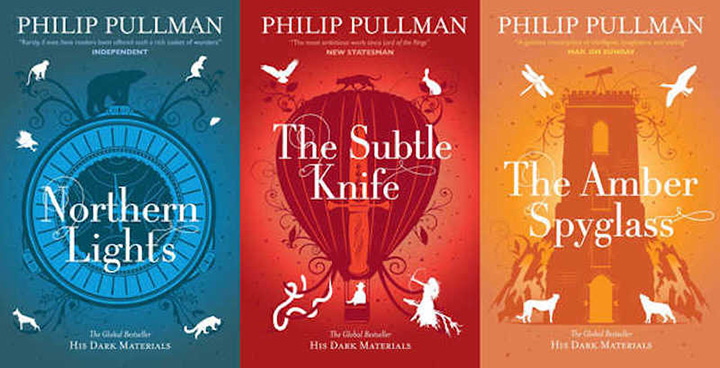Twenty-two years on from Northern Lights—aka The Golden Compass—the first volume of a trilogy that’s since sold more than twenty-two million copies, Phillip Pullman has announced that the much-discussed Book of Dust is, if not done, then damn near complete. But contrary to earlier speculation, it’s not a prequel. Or even a sequel. According to the author, it is, in fact, “an ‘equel.’ It doesn’t stand before or after His Dark Materials, but beside it.”
Wait, you what? Well, Pullman, apparently, had always wanted to tell the story of how Lyra Belacqua, the hero at the heart of His Dark Materials, came to be living at Jordan College, where the first book of said series starts, and in thinking about it, he “discovered a long story that began when she was a baby and will end when she’s grown up.” A long story that, in short, begins before Northern Lights, and ends after the events of The Amber Spyglass.
Thus, The Book of Dust is not, as proposed so long ago, a companion piece to the original trilogy at all, but a whole new trilogy—the first volume of which will be released later this year.
Although it is as yet untitled, book one of The Book of Dust is slated for publication on October 19 everywhere, by way of Penguin Random House Children’s and David Fickling Books in the UK. Per The Bookseller:
The first volume is set 10 years before Northern Lights and centres on the popular character Lyra Belacqua, starting at the beginning of her story and returning 20 years later. Alethiometers, daemons and the Magisterium feature but the book also introduces new characters including a new hero. The title is set between Oxford and London, in the same parallel Britain (or Brytain) from His Dark Materials trilogy.
That “new hero” is probably “‘an ordinary boy’ (a boy we have seen in an earlier part of Lyra’s story, if we were paying attention) who, with Lyra, is caught up in a ‘terrifying adventure that takes him into a new world.’”
But like His Dark Materials before it, elements of which were intended to be read as “an analogy of consciousness,” The Book of Dust aims to be more than a mere story. “The idea of Dust suffused His Dark Materials,” is how Pullman put it. “Little by little through that story the idea of what Dust was became clearer and clearer, but I always wanted to return to it and discover more.” Here, then, is what he’s found:
“Questions about that mysterious and troubling substance were already causing strife 10 years before His Dark Materials, and at the centre of The Book of Dust is the struggle between a despotic and totalitarian organisation, which wants to stifle speculation and enquiry, and those who believe thought and speech should be free.
“The story I’m telling in this book is more about […] William Blake’s vision, his idea of a fiercely reductive way of seeing things: it’s right or wrong; it’s black or white. He said that was far too limiting and we should bring out truer human vision when we see things, surround them all with a sort of penumbra of imagination and memories and hopes and expectations and fears and all these things.”
The Book of Dust, then, is “an attack on the reductionism, the merciless reductionism, of doctrines with a single answer.” But in the event that that’s a bit heady for you, take heart in the fact that it’s also the long-awaited expansion of a narrative near and dear to the hearts of many readers indeed. As David Fickling himself said, “it is a really important book for now, not in an intellectual way, but in a storytelling way.”
So… roll on October, right?
Niall Alexander is an extra-curricular English teacher who reads and writes about all things weird and wonderful for The Speculative Scotsman, Strange Horizons, and Tor.com. He lives with about a bazillion books, his better half and a certain sleekit wee beastie in the central belt of bonnie Scotland.










